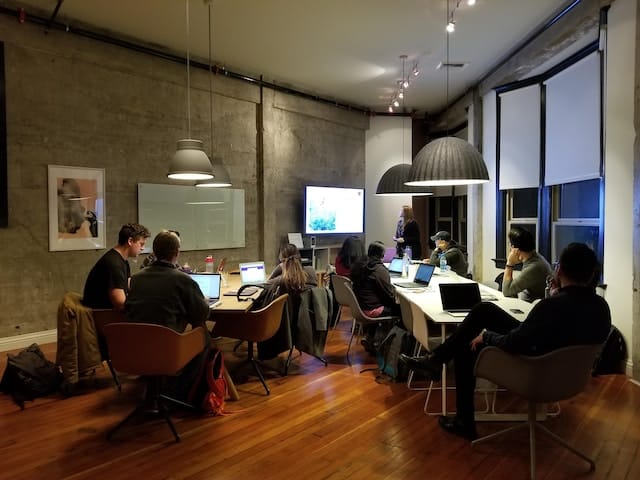In today’s digital landscape, the need for cybersecurity has never been more pressing. As cyber threats continue to escalate, it is crucial to equip students with the knowledge and skills necessary to safeguard against these risks.
Cybersecurity workshops for students serve as an effective means to educate and empower the younger generation in protecting their digital assets. These workshops provide a comprehensive understanding of cybersecurity principles, best practices, and practical skills through immersive learning experiences. By engaging in hands-on activities and hearing from industry experts, students develop critical thinking, problem-solving, and teamwork skills.

Moreover, these workshops foster an interest in cybersecurity careers and increase awareness of the evolving cyber threat landscape. With proper planning and organization, cybersecurity workshops enable students to navigate the digital world safely and confidently.
Importance of Cybersecurity Workshops
The significance of cybersecurity workshops lies in their ability to provide students with practical knowledge and skills to navigate the complex world of online security threats. These student workshops are designed to be interactive and engaging, offering participants hands-on training and real-world scenarios to enhance their understanding of cybersecurity. By participating in these workshops, students gain a deeper understanding of the various cybersecurity concepts, tools, and techniques used to protect digital assets and information.
Cybersecurity education events often feature workshops that cover a wide range of topics, including network security, data protection, threat intelligence, and incident response. These workshops are led by industry experts and professionals who share their insights and experiences, providing valuable perspectives on the ever-evolving field of cybersecurity.
One of the key benefits of these workshops is the opportunity for students to engage in hands-on activities. Through practical exercises and simulations, students learn how to identify and mitigate security vulnerabilities, apply best practices for secure coding and software development, and respond to cyber incidents effectively. This hands-on training allows students to apply theoretical knowledge in a realistic setting, preparing them for the challenges they may encounter in their future careers.
In addition to hands-on training, cybersecurity workshops often feature guest speakers who offer unique insights and perspectives on the field. These experts share their experiences and provide valuable advice to students, helping them gain a deeper understanding of the industry and its challenges.
Benefits of Organizing Workshops
Organizing workshops on cybersecurity provides students with valuable skill development opportunities, allowing them to enhance their knowledge and proficiency in this field.
Additionally, these workshops offer networking and collaboration opportunities, enabling students to connect with industry professionals and peers, fostering a sense of community and support.
Moreover, organizing workshops helps in increasing awareness and knowledge about cybersecurity, equipping students with the necessary tools to protect themselves and others in the digital world.
Skill Development Opportunities

One of the key benefits of organizing cybersecurity workshops for students is the opportunity for skill development. These workshops provide a platform for students to enhance their knowledge and acquire new skills in the field of cybersecurity.
Here are two sub-lists outlining the skill development opportunities offered by these workshops:
- Technical Skills:
- Hands-on activities: Workshops offer practical exercises that allow students to apply theoretical knowledge to real-world scenarios. Participants gain hands-on experience in tasks such as network security analysis, vulnerability assessment, and incident response.
- Workshop planning and organization: Students involved in the organization of these workshops develop skills in planning, coordination, and communication. They learn how to create effective workshop schedules, manage resources, and collaborate with guest speakers and participants.
- Soft Skills:
- Guest speakers: Cybersecurity workshops often invite industry experts to share their experiences and insights. Students have the opportunity to interact with these professionals, improving their communication, networking, and presentation skills.
- Teamwork: Workshops often involve group activities, fostering teamwork and collaboration. Students learn how to work effectively in teams, solve problems together, and communicate their ideas clearly.
Networking and Collaboration
By facilitating networking and collaboration, organizing cybersecurity workshops for students fosters professional connections and knowledge sharing. These workshops provide a platform for students to interact with industry professionals, experts, and peers, creating opportunities for learning and growth.
Through networking, students can establish valuable connections that can lead to mentorship, internships, or even job opportunities in the cybersecurity field. Collaborative activities during the workshops enable students to work together on real-world cybersecurity challenges, enhancing problem-solving skills and teamwork.
Additionally, workshops often feature guest speakers who share their experiences and insights, further enriching students’ understanding of the industry.
Increased Awareness and Knowledge
Students who participate in cybersecurity workshops gain increased awareness and knowledge in the field, equipping them with valuable skills for a successful career in cybersecurity.
These workshops provide a comprehensive learning experience through various means such as workshop planning and organization, hands-on activities, and guest speakers.
- Workshop planning and organization: Students learn how to plan and organize cybersecurity workshops, developing skills in event management, logistics, and coordination. This knowledge is essential for future roles in cybersecurity where effective planning and organization are crucial.
- Hands-on activities: Workshops offer practical exercises that allow students to apply their theoretical knowledge. By engaging in hands-on activities like simulated cyber-attack scenarios or vulnerability assessments, students gain valuable experience in real-world cybersecurity challenges.
- Guest speakers: Inviting industry professionals as guest speakers provides students with insights into the latest trends, technologies, and best practices in cybersecurity. These experts share their experiences and knowledge, exposing students to different perspectives and enhancing their understanding of the field.
Increasing Awareness of Cyber Threats

Increasing awareness of cyber threats is crucial in today’s digital age.
Students need to understand the real-world cyber threats that exist and the potential impact they can have on individuals and society.
Real-World Cyber Threats
One of the key objectives of the cybersecurity workshops is to enhance students’ understanding of real-world cyber threats. To achieve this, the workshops employ various strategies aimed at increasing awareness and knowledge about the ever-evolving landscape of cyber threats.
Here are two ways in which these workshops help students to grasp the reality of cyber threats:
- Interactive simulations: Students participate in hands-on activities that simulate real-world cyber attacks, allowing them to experience the consequences and understand the techniques used by hackers.
- Guest speakers: Experts from the cybersecurity industry are invited to share their experiences and insights, providing students with firsthand accounts of the challenges faced in combating cyber threats.
Impact on Individuals
Enhancing awareness of cyber threats is achieved through the workshops’ focus on increasing students’ understanding of the impact on individuals. By exploring real-world examples and case studies, students gain insights into the potential consequences of cyber threats on individuals’ lives. This knowledge empowers them to recognize the importance of cybersecurity and take proactive measures to protect themselves and others.
To illustrate the impact of cyber threats, the workshops incorporate interactive activities and guest speakers who share their firsthand experiences. These activities help students understand the potential dangers of cyber attacks, such as identity theft, financial loss, and reputational damage. By actively engaging in these workshops, students develop a deeper understanding of the significance of cybersecurity in their daily lives.
To further illustrate the impact of cyber threats, the following table highlights some common consequences individuals may face:
| Impact on Individuals | Examples |
|---|---|
| Financial Loss | Unauthorized transactions, ransomware attacks |
| Identity Theft | Stolen personal information, fraudulent activities |
| Reputational Damage | Online harassment, spreading false information |
| Emotional Distress | Cyberbullying, online scams |
Through these workshops, students gain a comprehensive understanding of the impact of cyber threats, enabling them to make informed decisions and protect themselves in the digital world.
Developing Practical Skills in Students
Several hands-on activities are incorporated into cybersecurity workshops to develop practical skills in students. These activities are designed to provide students with real-world experience and enhance their understanding of cybersecurity concepts. Here are two examples of hands-on activities commonly used in these workshops:
- Capture the Flag (CTF) Challenges: CTF challenges are simulated cybersecurity competitions where students are tasked with solving a series of puzzles, challenges, and vulnerabilities. By participating in CTF challenges, students gain practical experience in identifying and exploiting security vulnerabilities, analyzing code for weaknesses, and developing effective strategies to protect against cyber threats.
- Forensics Investigation: In this activity, students are presented with a simulated cybercrime scenario and are required to investigate and analyze digital evidence to uncover the perpetrator. By examining log files, network traffic, and other digital artifacts, students learn the techniques and tools used in digital forensics, such as data recovery, evidence preservation, and incident response.
Encouraging Interest in Cybersecurity Careers
To further cultivate students’ interest in cybersecurity careers, it is imperative to consistently expose them to the diverse opportunities and challenges within the field. One effective way to achieve this is by organizing workshops that provide students with firsthand experience and knowledge about cybersecurity. These workshops can include a range of activities designed to engage students and spark their interest in this field.
Hands-on activities are an essential component of these workshops. By allowing students to actively participate in simulated cybersecurity scenarios, they can gain practical skills and a deeper understanding of the industry. These activities may include tasks such as identifying and mitigating various types of cyber threats, analyzing security breaches, or designing secure systems.
Inviting guest speakers from the cybersecurity industry can also greatly enhance students’ interest in pursuing a career in this field. These experts can share their real-world experiences, discuss current trends and challenges, and provide insights into potential career paths. By interacting with professionals who are actively working in cybersecurity, students can gain valuable knowledge and inspiration that can fuel their passion and drive to excel in this field.
Fostering Collaboration and Teamwork
One effective way to promote collaboration and teamwork in cybersecurity workshops for students is by fostering a sense of collective responsibility. By emphasizing the importance of working together towards a common goal, students can develop a stronger understanding of the value of collaboration in the field of cybersecurity.
To foster collaboration and teamwork in cybersecurity workshops, the following strategies can be implemented:
- Group projects: Assigning students to work in teams on hands-on projects allows them to practice collaboration skills. They can learn to communicate effectively, delegate tasks, and leverage each other’s strengths to achieve a common objective.
- Scenario-based simulations: Presenting students with real-world cybersecurity scenarios that require teamwork and collaboration can help them understand the complexity of cybersecurity challenges. These simulations can include incident response exercises or network defense scenarios that require students to work together to solve problems and protect systems.
Tips for Successful Workshop Planning

Effective workshop planning is crucial for the success of cybersecurity workshops for students. Planning a workshop requires careful consideration of various factors to ensure that the objectives of the workshop are achieved and the participants have a valuable learning experience.
Firstly, it is essential to define the goals and objectives of the workshop. These should be clear, specific, and aligned with the desired outcomes for the students. Once the objectives are determined, the workshop agenda can be developed, outlining the topics to be covered, the sequence of activities, and the time allocated to each.
Next, it is important to select the appropriate venue and resources for the workshop. The venue should be conducive to learning and equipped with the necessary technology and equipment for hands-on activities. Additionally, it is beneficial to have guest speakers who are experts in the field of cybersecurity to provide valuable insights and real-world examples.
Moreover, effective workshop planning involves considering the needs and preferences of the participants. This includes determining the target audience, their background knowledge, and their learning preferences. Adapting the workshop content and delivery methods to cater to the participants’ needs will enhance their engagement and understanding.
Lastly, communication and promotion of the workshop are vital to attract participants. Clear and concise communication about the workshop objectives, content, and benefits will help generate interest and ensure maximum attendance.
Engaging Hands-on Activities for Students
During the cybersecurity workshops for students, engaging hands-on activities play a crucial role in enhancing their learning experience. These activities not only provide practical knowledge but also help students develop essential skills in the field of cybersecurity.
Here are two sub-lists that highlight the importance of engaging hands-on activities:
1. Practical Simulations:
- Students are given real-world scenarios to analyze and solve, allowing them to apply their theoretical knowledge in a practical setting.
- Through hands-on simulations, students can experience firsthand the challenges and complexities of dealing with cybersecurity threats, such as identifying vulnerabilities and implementing security measures.
2. Interactive Workshops:
- Workshops that involve hands-on activities, such as creating secure passwords or conducting penetration testing, enable students to actively participate in the learning process.
- Collaborative activities, such as team-based challenges or mock incident response exercises, foster teamwork and communication skills, which are crucial in the cybersecurity field.
Engaging hands-on activities provide students with the opportunity to reinforce their understanding of cybersecurity concepts, develop critical thinking skills, and gain practical experience. By actively engaging in these activities, students can better grasp the complexities of cybersecurity and prepare themselves for real-world challenges.
Inviting Expert Guest Speakers
To further enrich the learning experience, the cybersecurity workshops for students can benefit from the inclusion of expert guest speakers. Inviting these speakers can provide valuable insights and real-world experiences to the students, enhancing their understanding of cybersecurity concepts and practices.
Expert guest speakers can offer unique perspectives and share their expertise in various areas of cybersecurity. They can provide insights into the latest threats and trends, discuss best practices for securing networks and systems, and share case studies of successful cybersecurity implementations. By sharing their knowledge and experiences, these speakers can inspire students to pursue careers in cybersecurity and motivate them to develop their skills further.
Guest speakers can also facilitate networking opportunities for students. They may be professionals from industry-leading organizations or renowned researchers in the field. Their presence can create connections between students and potential employers or mentors, opening doors to future career opportunities.
To make the most of these guest speaker sessions, it is important to carefully select speakers who have relevant expertise and can effectively communicate complex concepts to students. Additionally, interactive sessions that encourage student participation and Q&A sessions can enhance the learning experience and foster discussions on cybersecurity topics.

Frequently Asked Questions
How Long Are the Workshops Typically?
Typically, the workshops are designed to be comprehensive and informative, with a duration of approximately 4-6 hours. This allows for in-depth exploration of various cybersecurity topics and hands-on activities, enabling students to develop practical skills and knowledge.
Are There Any Prerequisites or Prior Knowledge Required to Attend the Workshops?
There are no prerequisites or prior knowledge required to attend the workshops. The workshops are designed to provide students with a foundational understanding of cybersecurity concepts and skills, making them accessible to individuals of all levels of expertise.
Do Students Receive Any Certifications or Recognition After Completing the Workshops?
Students who complete the workshops will receive certifications and recognition, acknowledging their successful completion of the program. This recognition demonstrates their proficiency in cybersecurity principles and enhances their credentials in the field.
Are the Workshops Open to Students From All Academic Disciplines, or Are They Focused on Specific Majors?
The workshops are open to students from all academic disciplines, allowing for a diverse range of perspectives and knowledge to be shared. This inclusive approach fosters collaboration and enhances the overall learning experience.
How Are the Workshops Funded and Are There Any Costs Associated With Attending?
The workshops are funded through a combination of grants, sponsorships, and participant fees. There may be costs associated with attending, which vary depending on the workshop and its location.
Conclusion
In conclusion, cybersecurity workshops for students play a crucial role in equipping them with the knowledge and skills needed to navigate the digital world safely.
By organizing these workshops, educational institutions and organizations can increase awareness of cyber threats, develop practical skills, encourage interest in cybersecurity careers, and foster collaboration and teamwork.
Through engaging hands-on activities and expert guest speakers, students gain a comprehensive understanding of cybersecurity principles.
Overall, these workshops empower students to protect themselves and their digital assets in today’s evolving cyber landscape.
